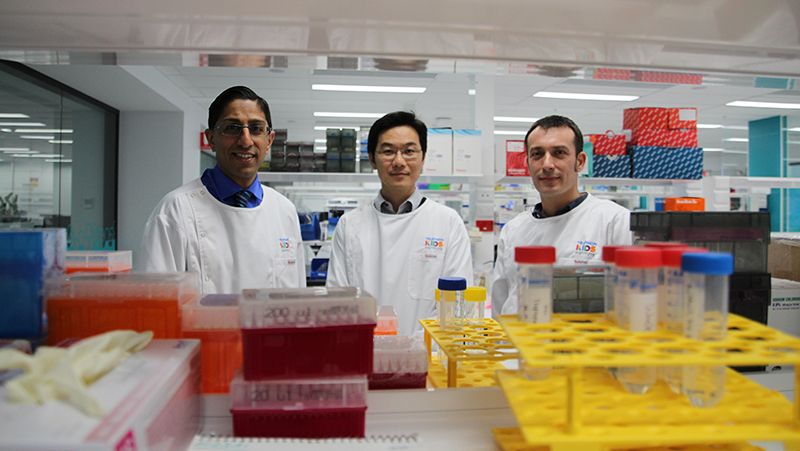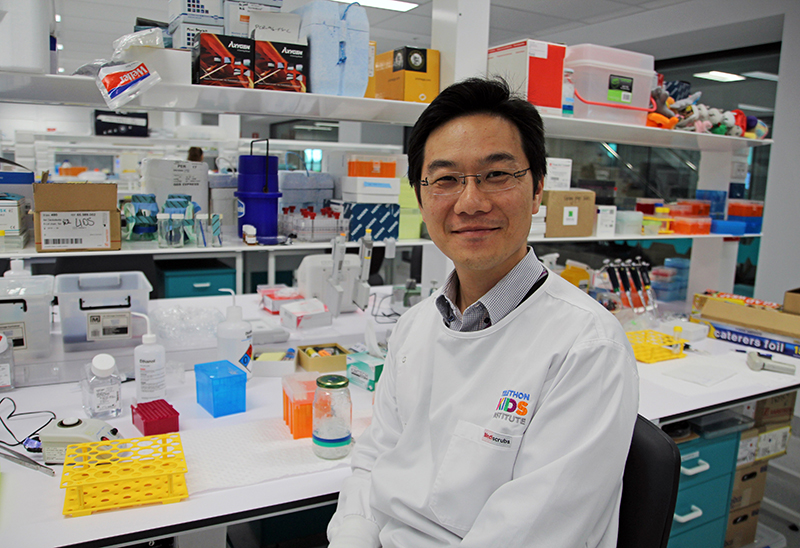Search
Research
Invasive fungal disease in children with solid tumors: An Australian multicenter 10-year reviewInvasive fungal disease (IFD) occurs less frequently during treatment for solid compared to hematological malignancies in children, and risk groups are poorly defined. Retrospective national multicenter cohort data (2004-2013) were analyzed to document prevalence, clinical characteristics, and microbiology of IFD.
Research
Insights into the Clinical, Biological and Therapeutic Impact of Copy Number Alteration in CancerCopy number alterations (CNAs), resulting from the gain or loss of genetic material from as little as 50 base pairs or as big as entire chromosome(s), have been associated with many congenital diseases, de novo syndromes and cancer. It is established that CNAs disturb the dosage of genomic regions including enhancers/promoters, long non-coding RNA and gene(s) among others, ultimately leading to an altered balance of key cellular functions.
Research
Down syndrome-associated leukaemias: current evidence and challengesChildren with Down syndrome (DS) are at increased risk of developing haematological malignancies, in particular acute megakaryoblastic leukaemia and acute lymphoblastic leukaemia. The microenvironment established by abnormal haematopoiesis driven by trisomy 21 is compounded by additional genetic and epigenetic changes that can drive leukaemogenesis in patients with DS.
Research
Regular exercise improves the well-being of parents of children with cancerMental health benefits of a pedometer-based exercise intervention for parents of children with cancer were identified.
Research
CCI-007, a novel small molecule with cytotoxic activity against infant leukemia with MLL rearrangementsIdentified CCI-007 as a novel small molecule that displays rapid toxicity towards a subset of MLL-r, CALM-AF10 and SET-NUP214 leukemia cell lines
Research
Successful Treatment of Congenital Erythroleukemia With Low-Dose Cytosine ArabinosideWe report a term male with congenital acute erythroleukemia who achieved sustained remission with low-dose cytosine arabinoside alone
Research
The role of CCN family genes in haematological malignanciesHaematological malignancies, although a broad range of specific disease types, continue to show considerable overlap in classification, and patients are...
Research
Novel therapeutics approaches for infants with high-risk infant acute lymphoblastic leukaemiaRishi S. Laurence Sébastien Kotecha Cheung Malinge MB ChB (Hons) MRCPCH FRACP PhD BPharm (Hons) MBA PhD PhD Co-Head, Leukaemia Translational Research

News & Events
Lightening the leukaemia load for kids with Down syndromeKids born with Down syndrome are at high risk of an array of health problems. One of the lesser-known complications is their increased risk of childhood leukaemia.

News & Events
Working to end childhood cancer: A father’s storyDr Laurence Cheung is doing everything he can to end the threat of childhood leukemia. His research has the potential to change countless lives, but he also has another important job – being a dad to three beautiful children.
